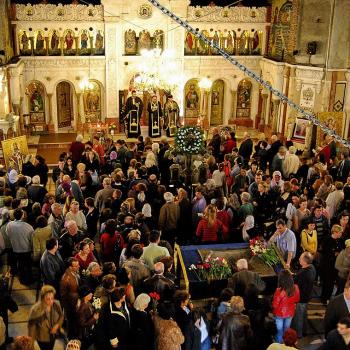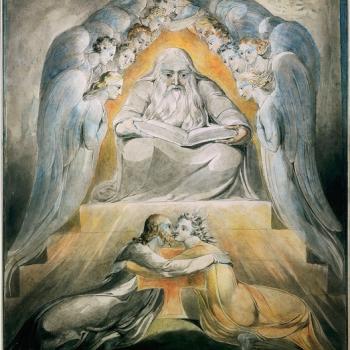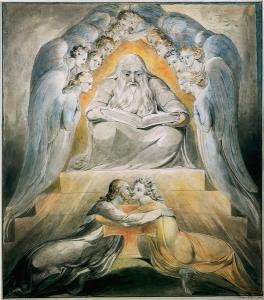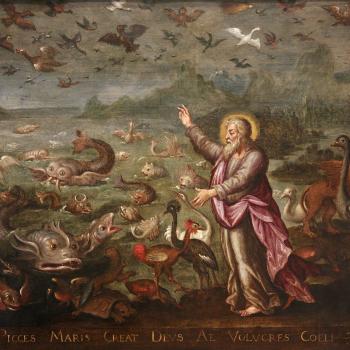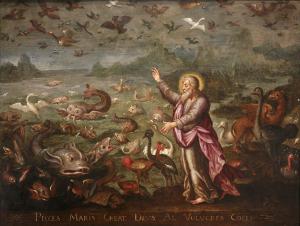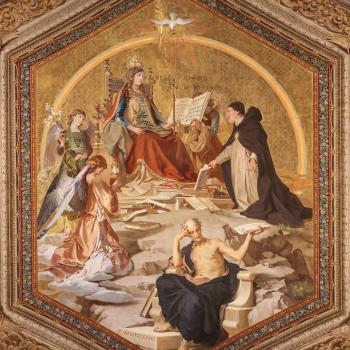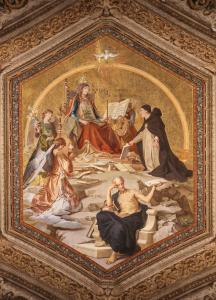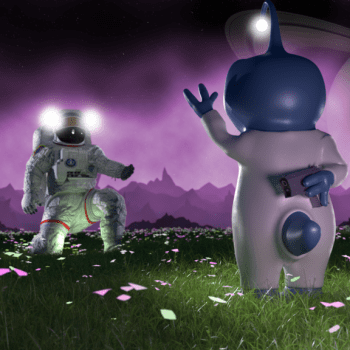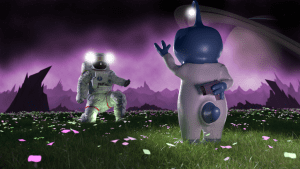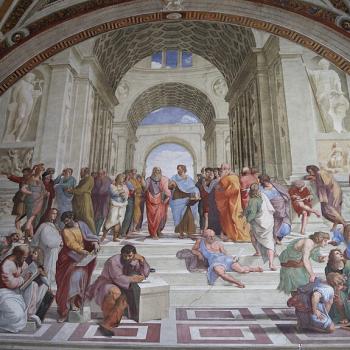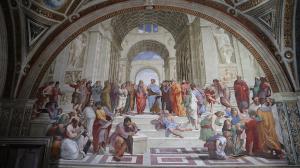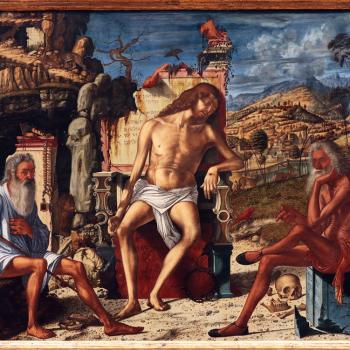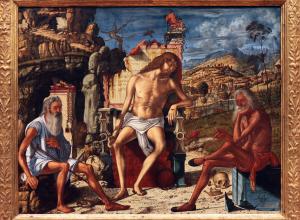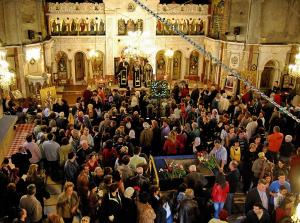
In the Byzantine tradition, Lent is over. Holy Week is a time all unto its own. The last day of Lent was the Friday before Palm Sunday. Then comes Lazarus Saturday, the celebration which commemorates when Jesus brought Lazarus back to life (which can be said to be a resuscitation, not a resurrection, because, in Christian theology, a resurrection is more than just coming back to life). Then comes Palm Sunday which leads us to Holy Week.
Holy week was not something I thought about when I was a Protestant. Because of this, because of the habits I formed in my youth, I have often found it difficult to connect with it and its various traditions. Yes, Palm Sunday and Good Friday were days that we remembered, and we might have realized there are many special events which took place between the two, but we did not really engage them in our worship services. We did not think about them during the week. It was only when I became a Byzantine that I found myself trying to connect myself to the events taking place during Holy Week. Certainly, an important way this is done is liturgically, with the various services the Byzantine tradition has during Holy Week, but it is not always easy to go to all those services. This is why I try to think about the events which are commemorated in my liturgical tradition, ponder them on my own so that I can better understand their meaning, both within the Gospel narrative, but also for my own spiritual development. Sometimes, I find the best way to do this is by writing theological and spiritual essays, or by writing poetry, despite the fact I have relatively feeble poetic skills, because I find the poetic mindset is one which is extremely helpful for contemplation:
Riding triumphantly into the city, the cheers soon died
As he taught and preached and the powers sighed:
He proclaimed the way of love, the way of God,
Expecting everyone to transcend the grand façade.
With all its glory, Imperial Rome
Could not match his Shalom.
Peace he preached, blessed was he
Who emerged from the fig tree.
His feet were anointed with love,
Fit for the one who came from above:
Then he washed his disciples,
Ahead of the oncoming trials.
At the supper, he gave his all,
Before Judas went to his fall.
Finally, he was taken by soldiers,
With his cross on his shoulders.
His body was pierced, his blood was shed:
His heart burst, before he was found dead.
Coronated with death, the grave took him in:
As he undertook the burden of all our sin.
Holy Week is special; it is its own special, sacred time. This is why it is not to be seen as a part of Lent. We are meant to be drawn into the events, to participate in them, to see that there is something trans-historical involved in them so that we can truly find ourselves there with Christ and his disciples. The words sung during Holy Week have us act and react as if the events are happening right before us, as if we are a part of the events with Christ’s first followers. While I appreciate all of this, I find it extremely difficult to truly place myself into the events themselves. I keep looking at them in hindsight. This, I think, comes in part from my Protestant background, but I also think it comes in part from my own personal nature. But, do you know what? I think this is alright. We all comes with our own spiritual needs, and though there are general norms offered by the church in its liturgical traditions, norms which will help most of the people, due to the way we are unique, we will not experience them in the same way, and so we will not all get the same experience out of them. What is important, as I learned a long time ago from C.S. Lewis, is that we try to appreciate the tradition, to see the beauty being offered, and to join in the best we can, for by doing that, we begin to transcend ourselves and show God our love. For, when we find something difficult to do but continue to do so out of love, our love is exercised and able to grow, and in that exercise, in the way we seek to grow in love, God will be pleased. Thus, we often can and should supplement the norms with our own private devotions, doing what we finds helps us the most to continue to reflect upon and engage for ourselves the events which took place in Holy Week:
Christ comes to us where we are at,
Even when we feel spiritually flat.
His passion opens up his heart,
Giving us what we need to restart.
Glorified on earth, and then denounced,
Let us listen to what has been announced:
We are never far from the kingdom of heaven,
We just need to be freed from the sinful leaven.
Christ’s life and death took place in time, but also takes place in eternity, because Christ is both human and divine. In his divinity, he is acting in and with one eternal action, making all that he does one eternal act. This is why we can and should approach the various events in his life. Each one represents a facet of his eternal activity. If we find a way to join ourselves to them, we find a way to join ourselves not just to a historical event, but to eternity, and likewise, to the kingdom of God. They are distinct events in history, but in heaven, they all come together and are one. We will find different events will suit us better than others, but all of them are important and bring particular qualities, particular apprehensions of Christ’s divine activity with them, apprehensions which the others do not bring with them. Some events, certainly, apprehend more than others, such as those connected to Holy Week, which is why major events receive greater notice and liturgical celebrations, while lesser events, provide us with lesser celebrations. Thus, the church wisely tries to have us engage Holy Week, to find a way to be drawn into the events of Holy Week, because in doing so, the church is working to awaken us to the kingdom of God as it is found within us all.
* This Is Part LIV Of My Personal (Informal) Reflections And Speculations Series
Stay in touch! Like A Little Bit of Nothing on Facebook.
If you liked what you read, please consider sharing it with your friends and family!
N.B.: While I read comments to moderate them, I rarely respond to them. If I don’t respond to your comment directly, don’t assume I am unthankful for it. I appreciate it. But I want readers to feel free to ask questions, and hopefully, dialogue with each other. I have shared what I wanted to say, though some responses will get a brief reply by me, or, if I find it interesting and something I can engage fully, as the foundation for another post. I have had many posts inspired or improved upon thanks to my readers.


